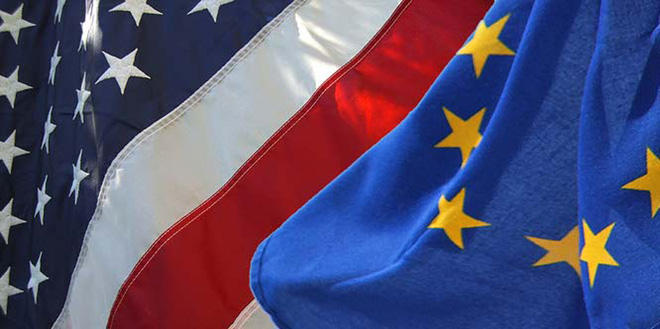Baku, Azerbaijan, Sept. 16
By Azer Ahmadbayli – Trend:
It has long been evident that sanctions could not destroy economic and political foundations of Iran. Isolation policy led to a reverse effect and today Iran looks more powerful. Moreover, the policy of negotiations showed to be more effective than continuous threats and the Nuclear Deal is a good example.
Before signing of the JCPOA, we witnessed close transatlantic cooperation in bringing Iran to terms, but now we see different positions. Is this purely and only related to personalities of Barack Obama and Donald Trump? Why the US and the EU are inside the fold in case of Russia and outside it in case of Iran? Is it a “good cop, bad cop” game or a real division of opinions between the allies?
Since President Trump took office, the balance of official US policy has been swinging again to intimidation of the Islamic Republic. Europe, on the contrary, is heading for rapprochement and expanding trade with Iran.
Different approach towards Iran has its historical, economic and political components.
HISTORY
History of mistrust and suspiciousness between US and Iran goes back to 1953, when CIA devised a plot to remove the then Iranian prime-minister Mohammad Mosaddegh from power. It was the first rift in the relations.
Then, in 1979, taking US diplomats hostage and further failing the “Eagle Claw” rescue operation, when the US received coffins with their servicemen, was humiliation the US have never suffered during its contemporary history. It was a final split between the two nations.
Up to date, the US hasn’t forgotten and forgiven those painful episodes because “it is inadmissible in any circumstances to speak to America with language of force”.
Europe has not had such a grave historical burden.
Today, many in the US, according to comments on social networks, are sure that Iran will not hold back attempts to obtain a nuclear weapon. The same or similar sense of mistrust many Iranians feel.
ECONOMICS
What about economics? Iran traditionally has been a consumer, and what is more important, good energy market for Europe.
European countries exported over 2.772 million tons of goods, worth $3.399 billion, to Iran during the first four months of current Iranian fiscal year (started March 20, 2017). The Islamic Republic’s imports from Europe registered an increase by 46 percent in terms of value and a rise by 53 percent in terms of volume compared to the preceding year, according to the latest statistics released by Trade Promotion Organization of Iran (TPOI).
Currently, the EU ranks fifth among trade partners of Iran (EC’s official website); while the latter is out of top 100 (132nd in imports and 145th in exports, according to US Census Bureau) trade partners of USA, which mainly import Iranian carpets, crocus, pistachio and caviar, i.e. superior goods.
In the first half of 2017, the trade turnover between Iran and the US decreased by 41.5 percent compared to 1H2016 - to $77.2 million, according to data from the US Census Bureau.
The Boeing deal that had just about to be made is still on hold, awaiting permission of the US Treasury. Moreover, the U.S. House of Representatives passed a bill on September 14 that would block the sale of commercial aircraft to Iran, according to a Reuters report.
POLITICS
Now we have come to political aspect of the US and the EU’s so-called controversy.
Iran is conducting irreproachable policy without giving any cause for the Nuclear Deal’s disruption. It complies with all terms of the Deal, which has been confirmed by the IAEA.
The current situation quite suits all the signatories of the deal, including the US. Unless Tehran’s nuclear development is under international control, nothing will happen with the deal’s status-quo. The EU will continue to play a role of mediator between the US and Iran. Its soft line, according to the scenario, should assure Iran to completely reject the idea of becoming a nuclear state.
Why does the US demonstrate its aggressive attitude towards Tehran?
Since the beginning of Syrian crisis Iran significantly has been extending areal of its political and military influence in the region. Iranian presence in Iraq with its pro-Iranian Government, penetration into Syria dangerously near the Israeli frontiers, support of Houthis in Yemen etc., disturb the White House as this spread is considered as a claim to regional leadership and threatens basic interests of the US and its allies in the Middle East.
Strategically, official Washington sees evil in Iranian clergy and is convinced that until it dominates over secular society, Iran will remain a menace and the only way to treat it in current situation is a tough stance. Europe is more tolerant to political order in Iran.
However, we should take into account that the US and Europe have shared values, similar world outlook in spite of variety of nationalities, and mutual security obligations.
These three weight more than all other arguments put together.






